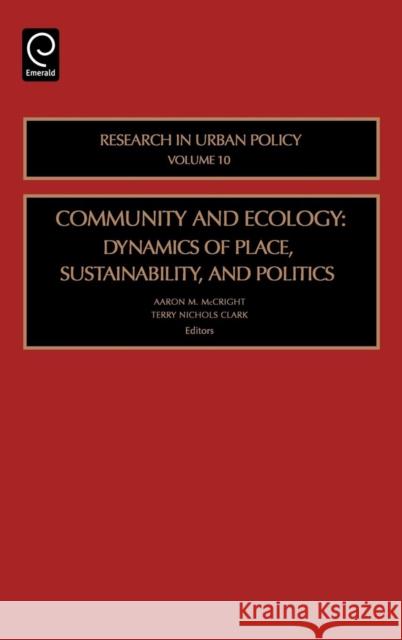Community and Ecology: Dynamics of Place, Sustainability and Politics » książka
Community and Ecology: Dynamics of Place, Sustainability and Politics
ISBN-13: 9780762313099 / Angielski / Twarda / 2006 / 320 str.
Humans live in social communities that are embedded ecologically within overlapping biophysical environments. This volume facilitates an ongoing dialogue between community sociologists and environmental sociologists about how humans interact with each other in social communities and with biophysical environments in an ecological community. The chapters in this volume contribute to three related areas of scholarship. First, chapters two through four deal with the ecological and social significance of place. The authors of these three chapters examine different theoretical and substantive dilemmas regarding place and ecology. Their scholarship investigates the significance of place across a range of natural, modified, and built environments. Second, chapters five through seven deal with the challenges of local sustainability. The authors of these three chapters perform scholarship on social, economic and ecological dimensions of local sustainability. Third, chapters eight through eleven deal with local environmental politics. The authors of these four chapters examine the various dynamics of local political processes in communities across three continents. These scholars explicitly examine how the structure of political opportunities in different localities affects the mobilization necessary to recognize and ameliorate environmental problems. We anticipate that this volume furthers the cross-pollination of ideas between community sociologists and environmental sociologists. Ultimately, the heightened and sustained communication between these two groups of scholars may lead to emergent theoretical, methodological, and substantive insights that may contribute to the discipline of sociology more generally. Different sections of the book address ecological and social significance of place, challenges of local sustainability, and local environmental politics. The book enhances the interplay of ideas between community sociologists and environmental sociologists, and stimulates thought that will contribute to the general field of sociology.











